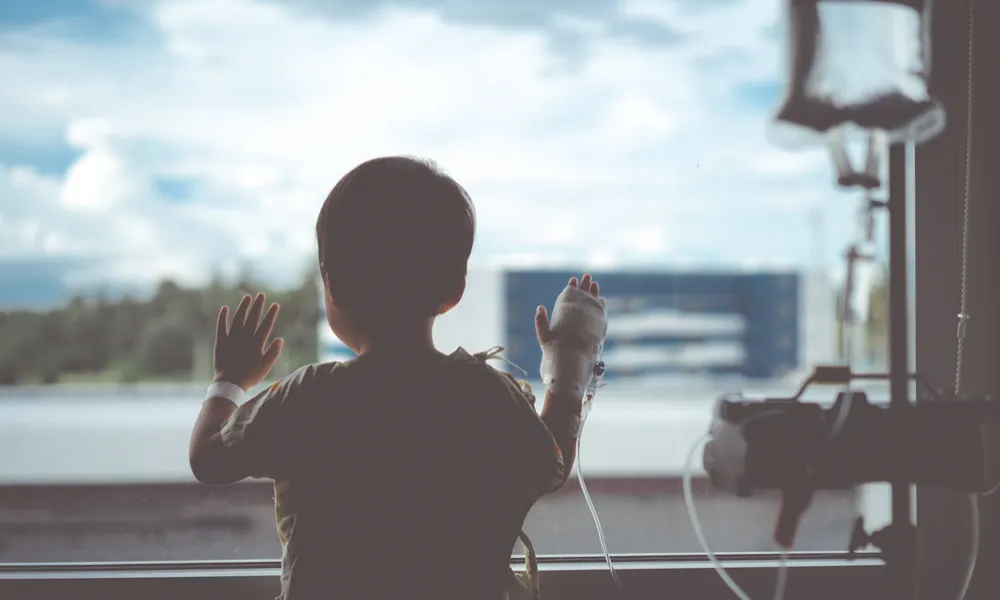The shortage of specialised paediatric services for children with chronic and complex conditions remains one of the weakest points of Cyprus’s health system. While GESY has improved access to basic care, many families whose children need regular monitoring by a paediatric cardiologist, paediatric endocrinologist or paediatric nephrologist still face a demanding reality. The problem is worse outside the main urban centres, where these specialties are either absent or extremely limited. Families from Paphos, Famagusta and often Larnaca must travel to Limassol or Nicosia for appointments, tests and follow-ups, sometimes multiple times a year. In this context, even a simple appointment becomes a multi-hour exercise involving school and work absences, extra costs and psychological strain on the whole family.
“We live in Paphos and have three children. Our daily life in recent years has been defined by our daughter’s medical appointments. She is 14 and faces multiple health issues. She needs regular follow-up with a paediatric cardiologist, nephrologist and endocrinologist. None of these specialties exist in Paphos, so every time we need a specialist, for routine checks or when something comes up, we must travel to Limassol or Nicosia,” says Maria Onisiforou, who contacted Politis after an incident that, as she puts it, “was the last straw.”
From Waiting List to Waiting Room
Eight months ago they booked an appointment with a paediatric endocrinologist in Nicosia. “On the day, my daughter developed a fever. The doctor told us not to come, of course. When we called to rebook, the next available date was five months later. So nine months of waiting in total. The appointment was at 10:00, we left at 06:30. The doctor eventually saw us at 12:00. That same day her prescription was due to open for medicines that we can only collect from Paphos General Hospital’s pharmacy. We could not get back in time, so the next day I lost another two hours of work to go and collect them.”
School and Everyday Life
Distance is not the only burden. Frequency and disruption add up. “It is not once in a while. There are periods when we need to go to Nicosia, mainly, once a week, and at the same time we might have an appointment in Limassol or need to pick up medicines from the hospital. We wake up before dawn, leave before 06:30 to make a 9:00 or 10:00 appointment. The drive is about an hour and a half, then waiting, the examination, and another two to three hours to return. By the time we get home, the day is gone for all of us.” Their daughter feels it most. “She misses lessons and valuable school hours. She has learning difficulties and every absence breaks her rhythm. The school is understanding, which helps, but she gets anxious. During exam periods the pressure is intense because she must focus while also keeping up with her health appointments. Sometimes she says, ‘Mum, why do we have to run all the time? I am tired.’ It breaks you.”
“We Considered Moving”
The financial dimension is significant. “Every trip has a cost: fuel, food on the road, lost income. We both work. When we have to leave in the middle of the day or take leave, that means lost wages or reduced productivity. This is a recurring cost, not occasional.” The burden grows with therapies and medicines that are not fully covered. “There are products outside GESY, special supplements or formulas we need from time to time. All of this weighs on the family budget. Some medicines are only available at the public pharmacy and there are times they tell us ‘come tomorrow’. That means another day off, more time lost. The system does not support you, it burdens you,” the mother notes.
The family has even considered relocating. “We thought about it, but we have two other children, jobs, schools, obligations. You cannot uproot a family because there are no doctors in your city. And you should not have to.”
“We are not asking for privileges. We are asking for dignified access to healthcare without destroying a family’s daily life. It is not a luxury for a child in Paphos to see a doctor without travelling hundreds of kilometres. It is a basic right,” the mother concludes.
